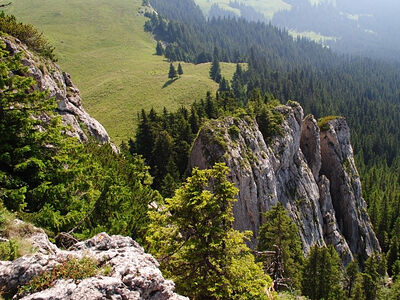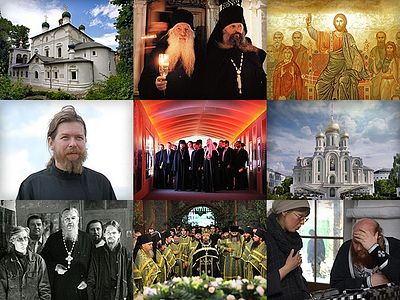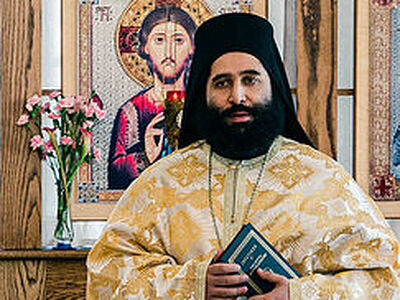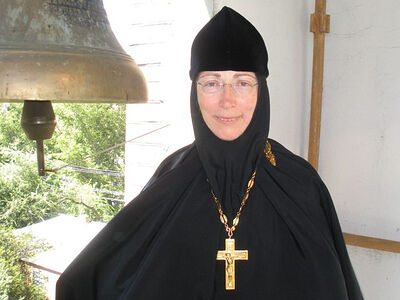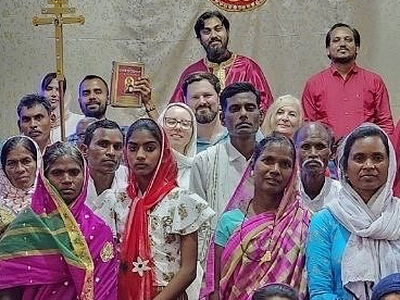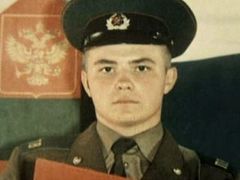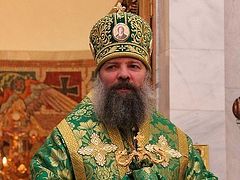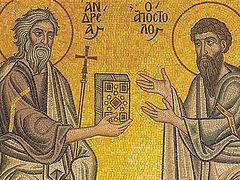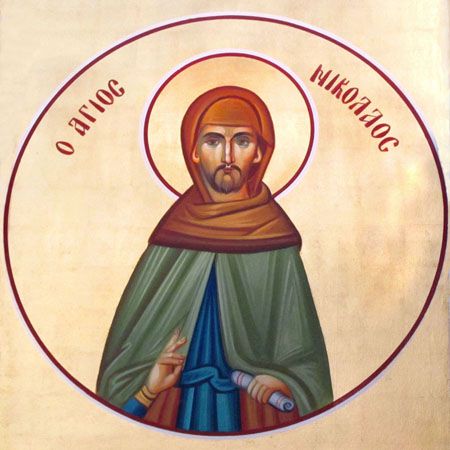 Photo: http://www.interalex.net/2014/10/st-nicholas-of-chios-new-martyr-info.html
Photo: http://www.interalex.net/2014/10/st-nicholas-of-chios-new-martyr-info.html You received a trophy of victory Nicholas,
Contesting steadfastly for Christ all-blessed one.
Saint Nicholas born into the pious family of Petros and Stamato in the village of Karyes on the island of Chios. From childhood, he cultivated all the holy virtues. When he was twenty his parents died, and he set off with a companion to seek his fortune as a stone-mason in Magnesia. But an accident or illness there deprived him of his reason and transformed his natural simplicity and meekness into idiocy, so that he was incapable of answering for himself for what he did.
Local Turks saw the young man's vulnerable situation as a chance to convert him to Islam, so they brought him before the judge. But since Nicholas was unable to make a response on his own, they sent him unharmed to his sister in Chios where she looked after him. However, in Magnesia a rumor spread that he denied his faith, changed his name and embraced Islam. This was told to his sister, and instead of keeping silent she spread the news, which came to the Turkish authorities. For this reason they dressed him in Turkish clothing and called him Mehmed, though they did not circumcise him. Unable to earn a living as a Muslim, he resorted to tending sheep. While the poor young man was keeping watch over the flocks, he met a monk named Cyril, who took pity on him and decided to do his best to bring him back to his right mind.
One night, as Nicholas was asleep in an abandoned church, he saw a beautiful maiden in a dream who told him he was healed. With his reason completely restored, the monk Cyril instructed him in the faith. This inflamed the heart of Nicholas to repent, although he was innocent of the rumor ascribed to him. Renouncing all physical comforts, he attended only to prayer, fasting, vigils and countless prostrations, to the point that those around him became concerned for him. One day, as he venerated the icon of the Beheading of Saint John the Forerunner and Baptist, he was seized by the desire to emulate him and accomplish his repentance by martyrdom. He wept as he kissed the icon of the Holy Forerunner, begging him to make him worthy of following after him for the love of Christ.
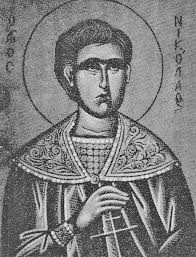
In the days that followed they used the most painful tortures they could devise in order to break the young man's resolve, but the grace of God was with him and enabled him to endure everything cheerfully. Covered in bruises he was thrown into the stables to be trampled by the horses; but, as with Daniel in the lion's den, the beasts showed themselves kinder than men and did Nicholas no harm. During all his torments, Nicholas kept a strict fast, in order to gain the reward of ascesis together with martyrdom.
After thirty days, Nicholas was sentenced to be beheaded, like his beloved Holy Forerunner. However, when brought to the place of execution, he was not immediately put to death, but they waited while he was on his knees with a dagger wounding his back, in order to either make him suffer more or to wait for a last minute conversion. Yet, this only increased his desire to die for Christ. Then the executioner slightly cut the back of his neck, but this did not weaken his resolve. After two attempts to behead him, the executioner was unable to accomplish the deed, so he took Nicholas by the hair and slit his throat like they do with animals.
A thick darkness fell upon Chios, that completely bewildered the inhabitants of the island. Only the countenance of the holy Martyr shone with a brilliance that could not be hid. It was then decided by the Turks to burn his body and thus dispose of the miracle, but this only allowed his body to give off a beautiful fragrance, revealing to all the eternal glory prepared for those who have fought the good fight, finished the course and kept the faith (2 Tim. 4:2). This took place on October 31, 1754.


